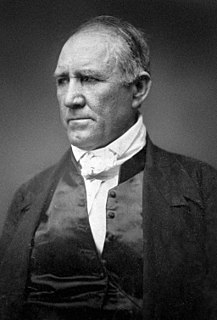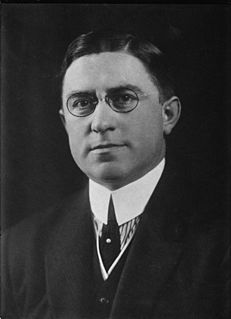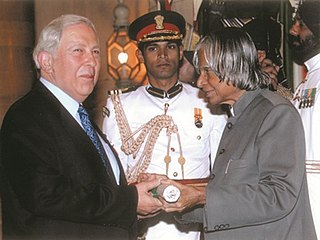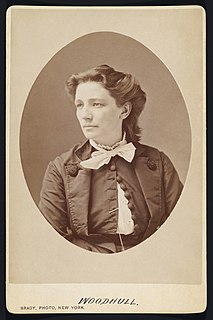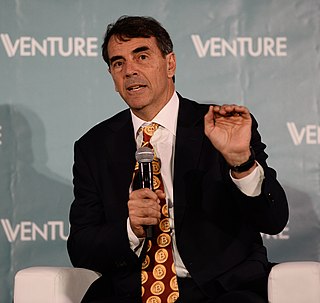Top 103 Monopolies Quotes & Sayings - Page 2
Explore popular Monopolies quotes.
Last updated on April 15, 2025.
The revelation of the secret of water will put an end to all manner of speculation or expediency and their excrescences, to which belong war, hatred, impatience and discord of every kind. The thorough study of water therefore signifies the end of monopolies, the end of all domination in the truest sense of the word and the start of a socialism arising from the development of individualism in its most perfect form.
If you have an internet service provider that's capable of slowing down other sites, or putting other sites out of business, or favoring their own friends and affiliates and customers who can pay for fast lanes, that's a horrible infringement on free speech. It's censorship by media monopolies. It's tragic: here we have a technology, the internet, that's capable really of being the town square of democracy, paved with broadband bricks, and we are letting it be taken over by a few gatekeepers. This is a first amendment issue; it's free speech versus corporate censorship.
I will now add what I do not like. First, the omission of a bill of rights providing clearly and without the aid of sophisms for freedom of religion, freedom of the press, protection against standing armies, restriction against monopolies, the eternal and unremitting force of the habeas corpus laws, and trials by jury in all matters of fact triable by the laws of the land and not by the law of nations.
In a world torn by every kind of fundamentalism - religious, ethnic, nationalist and tribal - we must grant first place to economic fundamentalism, with its religious conviction that the market, left to its own devices, is capable of resolving all our problems. This faith has its own ayatollahs. Its church is neo-liberalism; its creed is profit; its prayers are for monopolies.
The enclosure of the biological and intellectual commons in this way is a real threat to the future of people everywhere because it creates a situation where common practices that have been part of people's lives for generations become monopolies of a handful of pharmaceutical, agribusiness and agrichemical corporations. People then become incapable of looking after their own needs.
I have ever been opposed to banks, - opposed to internal improvements by the general government, - opposed to distribution of public lands among the states, - opposed to taking the power from the hands of the people, - opposed to special monopolies, - opposed to a protective tariff, - opposed to a latitudinal construction of the constitution, - opposed to slavery agitation and disunion. This is my democracy. Point to a single act of my public career not in keeping with these principles.
The inflow of capital from the developed countries is the prerequisite for the establishment of economic dependence. This inflow takes various forms: loans granted on onerous terms; investments that place a given country in the power of the investors; almost total technological subordination of the dependent country to the developed country; control of a country's foreign trade by the big international monopolies; and in extreme cases, the use of force as an economic weapon in support of the other forms of exploitation.
Anarchism is a definite intellectual current in the life of our times, whose adherents advocate the abolition of economic monopolies and of all political and social coercive institutions within society. In place of the present capitalistic economic order Anarchists would have a free association of all productive forces based upon co-operative labour, which would have as its sole purpose the satisfying of the necessary requirements of every member of society, and would no longer have in view the special interest of privileged minorities within the social union.
Under Ronald Reagan in the United States and Margaret Thatcher in the U.K., there was a rewriting of the basic rules of capitalism. These two governments changed the rules governing labour bargaining, weakening trade unions, and they weakened anti-trust enforcement, allowing more monopolies to be created.
Growth is the mantra of our society because the economy can't remain healthy without growth.Impregnable monopolies aside (and these are few), profits are both the hallmark of capitalism and its Achilles heel, for no business can permanently maintain its prices much above its costs. There is only one way in which profits can be perpetuated; a business-or an entire economy-must grow.
So the Bush-Obama administration has taken a fiscal stance diametrically opposed to that of the patron saint of free enterprise. While escalating war in Afghanistan and maintaining over 850 military bases around the world, the administration has run up the national debt that Smith decried. By shifting the tax burden off property and off rent-seeking monopolies - above all, off the financial sector - this policy has raised America's cost of living and doing business, thereby undercutting its competitive power and running up larger and larger foreign debt.
The state owned monopolies are among the greatest millstones round the neck of the economy. Liberals must stress at all times the virtues of the market, not only for efficiency but to enable the widest possible choice. Much of what Mrs Thatcher and Sir Keith Joseph say and do is in the mainstream of liberal philosophy.
Greece is a sort of American vassal; the Netherlands is the country of American bases that grow like tulip bulbs; Cuba is the main sugar plantation of the American monopolies; Turkey is prepared to kowtow before any United States proconsul and Canada is the boring second fiddle in the American symphony.
Radicals, on the other hand, want to advance from the jungle of laissez-faire capitalism to a world worthy of the name of human civilization. They hope for a future where the means of economic production will be owned by all of the people instead of just a comparative handful. They feel that this minority control of production facilities is injurious to the large masses of people not only because of economic monopolies but because the political power inherent in this form of centralized economy does not augur for an ever expanding democratic way of life.
Instead of abandoning competition and giving banks protected monopolies once again, the public would be better served by making it easier to close banks when they get into trouble. Instead of making banking boring, let us make it a normal industry, susceptible to destruction in the face of creativity.
This doctrine ['that the condition of man cannot be ameliorated, that what has been must ever be, and that to secure ourselves where we are we must tread with awful reverence in the footsteps of our fathers']is the genuine fruit of the alliance between Church and State, the tenants of which finding themselves but too well in their present condition, oppose all advances which might unmask their usurpations and monopolies of honors, wealth and power, and fear every change as endangering the comforts they now hold.
The problems that exist on Wall Street today go to the center of a debate in this country about wealth and democracy. We cannot keep our democracy if those who are in charge of handling the engines of our economy are not honest with their shareholders. That's why there is a role for government regulation here. That role for government is breaking up the monopolies, insisting on public disclosure, insisting on public audits, insisting on restitution whenever someone has been cheated.
Capitalist exploitation and cartels and monopolies are the enemies of underdeveloped countries. On the other hand a regime which is completely oriented towards the people as a whole and based on the principle that man is the most precious of all possessions, will allow us to go forward more quickly and more harmoniously, and thus make impossible that caricature of society where all economic and political power is held in the hands of a few who regard the nation as a whole with scorn and contempt.
That strain of anti-monopoly crusading egalitarianism really runs throughout American history from [Tomas] Jefferson to Woodrow Wilson, that finds its apotheosis in [Louis] Brandeis, continues through the New Deal, but then it sort of peters out in the '60s because progressives in particular become more interested in extending equality to minorities, and women, and other excluded groups, and little more suspicious of these old white guys, often from the south, who were crusaders against monopolies.
I describe what is happening as 'food fascism' because this system can only survive through totalitarian control. With patents on seed, an illegitimate legal system is manipulated to create seed monopolies. Seed laws that require uniformity - which criminalize diversity and the use of open-pollinated seeds - are fascist in nature. Suing farmers after contaminating their crops, [...] is another aspect of this fascism. Pseudo-hygiene laws that criminalize local, artisanal food are food fascism. And attacks on scientists and the silencing of independent research [...] are examples of knowledge fascism.
Monopolies, oligarchy, the striving for domination and not for freedom, the exploitation of an increasing number of small or weak nations by a handful of the richest or most powerful nations -- all these have given birth to those distinctive characteristics of imperialism which compel us to define it as parasitic or decaying capitalism.
A new educational system in which all children born shall have the same advantage of physical, industrial, mental and moral culture, and thus be equally prepared at maturity to enter upon active, responsible and useful lives. . . . In so doing, it strikes a fatal blow at . . . the most demoralizing of all monopolies. . . educational superiority.
As we view the achievements of aggregated capital, we discover the existence of trusts, combinations, and monopolies, while the citizen is struggling far in the rear or is trampled to death beneath an iron heel. Corporations, which should be the carefully restrained creatures of the law and the servants of the people, are fast becoming the people's masters.
And I know that sounds outrageous, but it's true. Such monopolies as Google, Facebook, Amazon, Apple are trying to stay with us from the moment that we wake up in the morning until the moment that we go to bed at night. They want to become our personal assistants. They want to become the vehicles to deliver us news, entertainment, to track our health. They want to obey our every beck and call through Amazon Alexa and Google Home.
Monopolies are not justified by theory; they should be permitted only when justified by facts. If there is no solid basis for extending a certain monopoly protection, then we should not extend that protection. This does not mean that every copyright must prove its value initially. That would be a far too cumbersome system of control. But it does mean that every system or category of copyright or patent should prove its worth. Before the monopoly should be permitted, there must be reason to believe it will do some good -- for society, and not just for monopoly holders.
Imperialism is capitalism at that stage of development at which the dominance of monopolies and finance capitalism is established; in which the export of capital has acquired pronounced importance; in which the division of the world among the international trusts has begun, in which the division of all territories of the globe among the biggest capitalist powers has been completed.
Google, Facebook, Amazon, Apple are among the most powerful monopolies in the history of humanity. So, the problem is, is that they have tremendous ability to shape the way that we think, the way that we filter the world, the way that we absorb culture. And if they were just companies, maybe we shouldn't be so concerned about them, but they play an incredibly vital role in the health of our democracy.
I imagine you already know that I am much more socialistic in my economic theory than capitalistic. And yet I am not so opposed to capitalism that I have failed to see its relative merits. It started out with a noble and high motive, to block the trade monopolies of nobles, but like most human systems it falls victim to the very thing it was revolting against. So today capitalism has outlived its usefulness. It has brought about a system that takes necessities from the masses to give luxuries to the classes.
The New York Times and PBS are gatekeepers of a sort. And they perform that role of gatekeeping with a set of rules and aspirations about where they want to lead their viewers and their readers. They value objective facts, and they attempt to transmit a comprehensive view of the world. And they do have values. And they do lead their viewers and their readers to certain conclusions. But it's different than such monopolies as Apple or Google which are dissecting information into these bits and pieces, which they're then transmitting to people. And it's about clicks.
Enforced by genetics, sexual reproduction, perspective, and experience, the most manifest characteristic of human beings is their diversity. The freer an economy is, the more this human diversity of knowledge will be manifested. By contrast, political power originates in top-down processes-governments, monopolies, regulators, and elite institutions- all attempting to quell human diversity and impose order. Thus power always seeks centralization.
A man has a right to use a saw, an axe, a plane, separately; may he not combine their uses on the same piece of wood? He has a right to use his knife to cut his meat, a fork to hold it; may a patentee take from him the right to combine their use on the same subject? Such a law, instead of enlarging our conveniences, as was intended, would most fearfully abridge them, and crowd us by monopolies out of the use of the things we have.
By a declaration of rights, I mean one which shall stipulate freedom of religion, freedom of the press, freedom of commerce against monopolies, trial by juries in all cases, no suspensions of the habeas corpus, no standing armies. These are fetters against doing evil which no honest government should decline.
All the world suffers from the usury of the Jews, their monopolies and deceit. They have brought many unfortunate people into a state of poverty, especially the farmers, working class people and the very poor. Then as now Jews have to be reminded intermittently anew that they were enjoying rights in any country since they left Palestine and the Arabian desert, and subsequently their ethical and moral doctrines as well as their deeds rightly deserve to be exposed to criticism in whatever country they happen to live.
We need to write because so many of our stories are not being heard. Where could they be heard in this era of fear and media monopolies? Writing allows us to transform what has happened to us and to fight back against what's hurting us. While not everyone is an author, everyone is a writer and I think that the process of writing is deeply spiritual and liberatory.
Some people think the Federal Reserve Banks are US government institutions. They are not... they are private credit monopolies which prey upon the people of the US for the benefit of themselves and their foreign and domestic swindlers, and rich and predatory money lenders. The sack of the United States by the Fed is the greatest crime in history. Every effort has been made by the Fed to conceal its powers, but the truth is the Fed has usurped the government. It controls everything here and it controls all our foreign relations. It makes and breaks governments at will.







